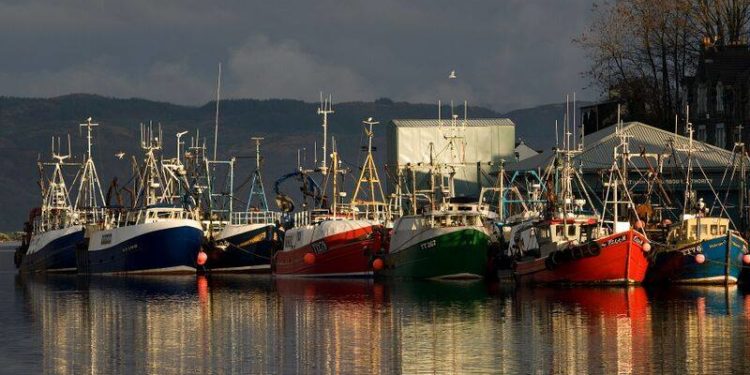The Scottish Fishermen’s Federation (SFF) is urging Scottish parliamentarians to support local communities on the West coast by rejecting Scottish Government proposals for an overly restrictive Marine Protected Area (MPA) in the Firth of Clyde.
Following widespread dismay among West coast fishing communities over initial Scottish Government measures on some West coast MPAs in June 2015, which threatened the viability of the fishing fleet, the Scottish Government issued revised proposals for three of them, which then went out for consultation.
However, a notable omission was the South Arran MPA where the initial proposals made by the Government in the summer of 2015 remain unchanged despite significant community opposition over the impact it will have on livelihoods and local economies.
Now, with the Scottish Rural Affairs, Climate Change and Environment Committee due to meet tomorrow (27 January) to decide upon whether to recommend the MPA proposals to Parliament, the SFF is calling on MSPs to put livelihoods and communities before green politicking. MSPs will have the final say on the proposals in a parliamentary vote.
‘We fully support the concept of MPAs and have long campaigned for the need of conservation zones to meet core sustainability and environmental objective,’ said Bertie Armstrong, chief executive of the SFF.
‘However, the South Arran MPA as it stands goes far beyond what was agreed upon during the initial consultation, which comprised a set of sensible measures that was even approved by the government’s own statutory nature adviser, Scottish Natural Heritage, as being the preferred option for meeting the twin objectives of marine conservation and sustainable fishing. Instead, we have a purely political decision of an overly restrictive MPA made to appease the green lobby, rather than a common sense management arrangement that would have conserved vulnerable habitats whilst protecting fishing communities at the same time,’ he said.
‘It is entirely possible to allow limited and carefully controlled fishing within parts of MPAs where there are no features of conservation importance and to impose a blanket ban over a whole area is totally irrational and unnecessary. One of the founding objectives of the Common Fisheries Policy is to enable the continuation of fishing whilst ensuring environmental sustainability – a principle the Scottish Government is completely ignoring. It is also ignoring the widespread local community opposition to these proposals. This is why it is so important that MSPs throw their support behind our communities and show that they are listening to their concerns.’









